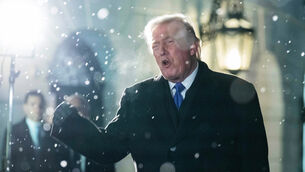US and Europe urge Iran to compromise
The United States and Europe today urged Iran to be open about its nuclear activities and freeze uranium enrichment, with Washington warning that continued defiance could result in tough measures by the UN Security Council.
In response, Iran warned the West against undue pressure, saying “the carrot and stick has always been counterproductive”.














